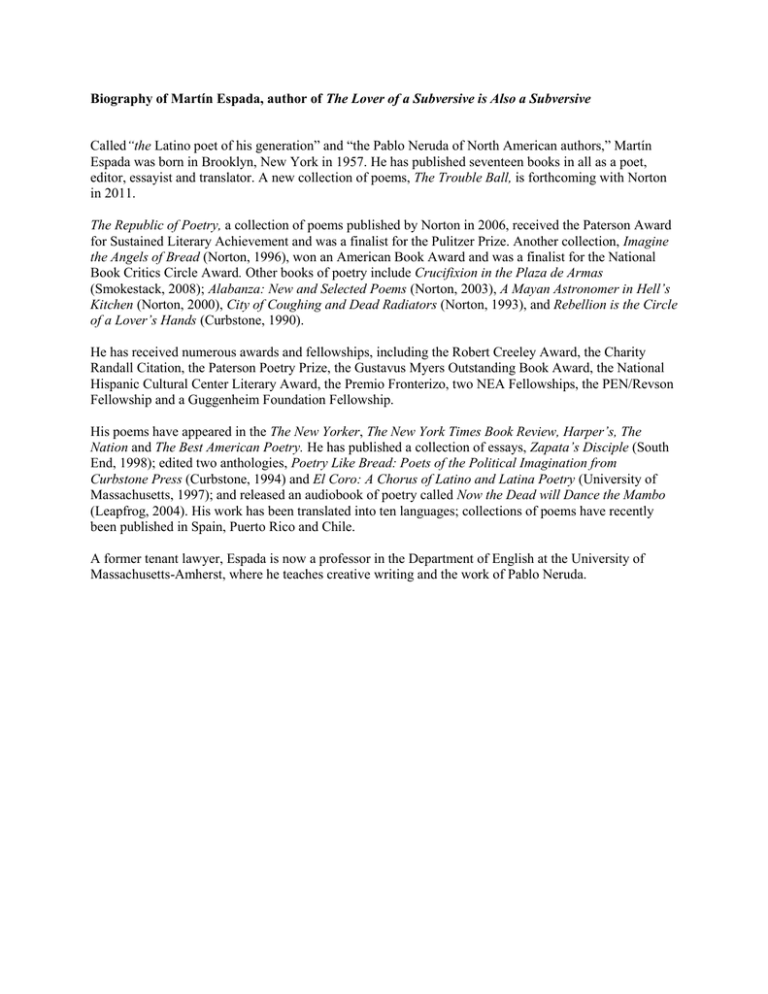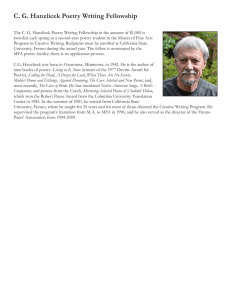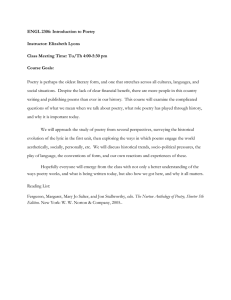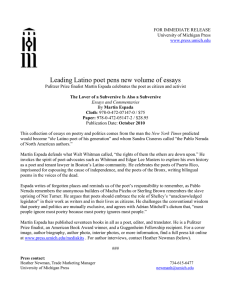The Lover of a Subversive is Also a Subversive “the
advertisement

Biography of Martín Espada, author of The Lover of a Subversive is Also a Subversive Called“the Latino poet of his generation” and “the Pablo Neruda of North American authors,” Martín Espada was born in Brooklyn, New York in 1957. He has published seventeen books in all as a poet, editor, essayist and translator. A new collection of poems, The Trouble Ball, is forthcoming with Norton in 2011. The Republic of Poetry, a collection of poems published by Norton in 2006, received the Paterson Award for Sustained Literary Achievement and was a finalist for the Pulitzer Prize. Another collection, Imagine the Angels of Bread (Norton, 1996), won an American Book Award and was a finalist for the National Book Critics Circle Award. Other books of poetry include Crucifixion in the Plaza de Armas (Smokestack, 2008); Alabanza: New and Selected Poems (Norton, 2003), A Mayan Astronomer in Hell’s Kitchen (Norton, 2000), City of Coughing and Dead Radiators (Norton, 1993), and Rebellion is the Circle of a Lover’s Hands (Curbstone, 1990). He has received numerous awards and fellowships, including the Robert Creeley Award, the Charity Randall Citation, the Paterson Poetry Prize, the Gustavus Myers Outstanding Book Award, the National Hispanic Cultural Center Literary Award, the Premio Fronterizo, two NEA Fellowships, the PEN/Revson Fellowship and a Guggenheim Foundation Fellowship. His poems have appeared in the The New Yorker, The New York Times Book Review, Harper’s, The Nation and The Best American Poetry. He has published a collection of essays, Zapata’s Disciple (South End, 1998); edited two anthologies, Poetry Like Bread: Poets of the Political Imagination from Curbstone Press (Curbstone, 1994) and El Coro: A Chorus of Latino and Latina Poetry (University of Massachusetts, 1997); and released an audiobook of poetry called Now the Dead will Dance the Mambo (Leapfrog, 2004). His work has been translated into ten languages; collections of poems have recently been published in Spain, Puerto Rico and Chile. A former tenant lawyer, Espada is now a professor in the Department of English at the University of Massachusetts-Amherst, where he teaches creative writing and the work of Pablo Neruda.





